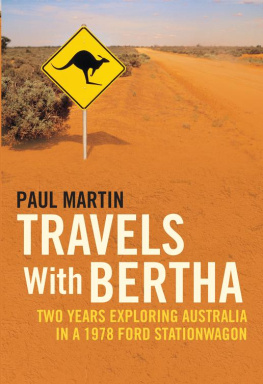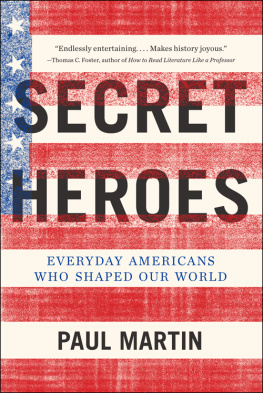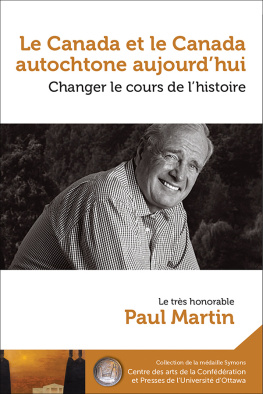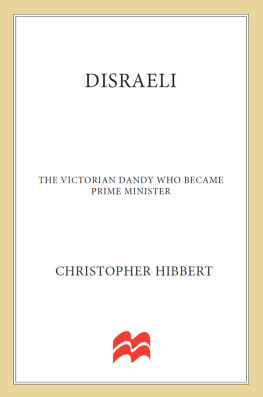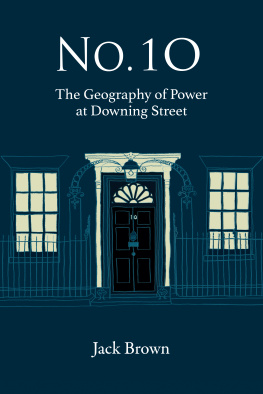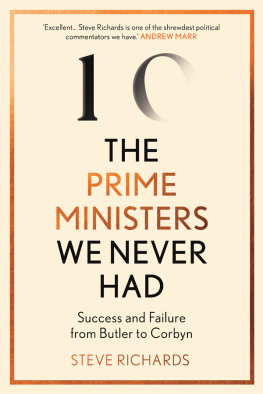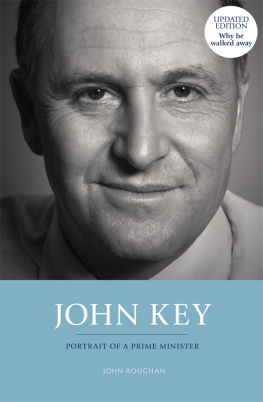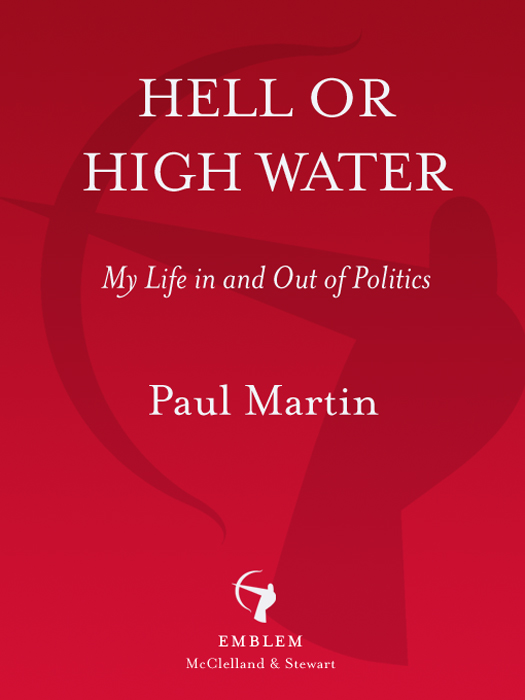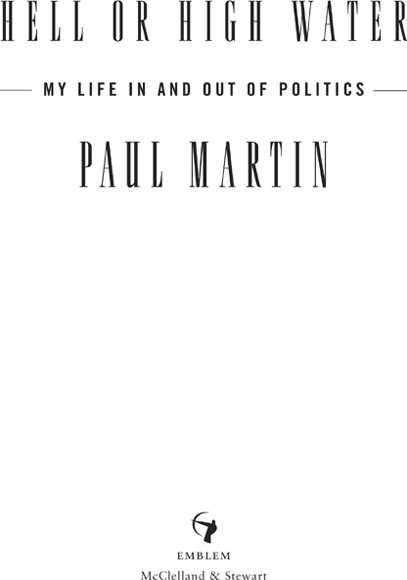To Sheila
Contents
| ONE |
| TWO |
| THREE |
| FOUR |
| FIVE |
| SIX |
| SEVEN |
| EIGHT |
| NINE |
| TEN |
| ELEVEN |
| TWELVE |
| THIRTEEN |
| FOURTEEN |
| FIFTEEN |
| SIXTEEN |
| SEVENTEEN |
| EIGHTEEN |
| NINETEEN |
| TWENTY |
| TWENTY-ONE |
| TWENTY-TWO |
| TWENTY-THREE |
| TWENTY-FOUR |
| TWENTY-FIVE |
| TWENTY-SIX |
| TWENTY-SEVEN |
| TWENTY-EIGHT |
| TWENTY-NINE |
| THIRTY |
| THIRTY-ONE |
| THIRTY-TWO |
CHAPTER ONE
An Ordinary Childhood
M y mother was born Eleanor Alice Adams in the village of McGregor about ten miles southeast of Windsor, Ontario. There were fewer than fifty people in McGregor, which was not much more than the place where the highway crossed the railway tracks. There were a couple of dozen houses, a church, and a general store that belonged to my grandparents.
I guess McGregor was too small to be fussy about social distinctions, because my mother was the product of what in those days they called a mixed marriage. Her mother, Amelia, had been born a McManamy, from Irish-Catholic stock. Her father, Edgar, was a Protestant. Now, Edgar was a wonderful man, but it was Amelia who was the dynamo in the family. At some point before the Depression, she moved the family business to Windsor, where she established a small pharmacy and eventually a second. With hard work and determination, my grandmother managed to lift the Adams family out of poverty and give it a tenuous grip on the middle class, which somehow survived the 1930s. In time she was able to buy a farm near McGregor and a cottage in the village of Colchester, which is where I spent my summers as a child and is the place I still remember as my childhood home.
The cottage was shared by my mother and my Aunt Mame and their families. It was not a grand place at all. I still remember when the outhouse was replaced with indoor plumbing. Originally, there was just one big bedroom upstairs, which was later divided in two. An addition downstairs created another bedroom. Church benches once belonging to a great-uncle who had been a Methodist circuit rider sat in the living room, a constant reminder of the Protestant side of the family. We had an icebox, and I remember Clyde Scott, who brought the ice wagon around to refill it. All my life I have referred to the refrigerator as the icebox, and long before the age of Google and the BlackBerry, my sons would look at me and say, My god, what century are you from?
Behind the cottage was a potato patch my Uncle Vince had ploughed under and rolled by hand to create a makeshift tennis court soon after the cottage was built in the 1920s. This was not a fancy clay court; when it rained, it turned to mud, and it was my job to take the hand roller and restore the court to playable condition and mark out the lines again with lime.
The cottage was on a street perpendicular to the main road, on the other side of which was a field we called the park, running to the cliff overlooking Lake Erie. During the day, the calm waters lapped at the shore, as the giant lake freighters passed five or six miles off in the shipping channel. By night, there were often huge winds and lightning storms the likes of which Ive never seen again. For me, it was a magical place. Many years later, I took Sheila back there and asked her to marry me.
During my childhood, there was no beach. In fact, high water was causing cliff erosion. My mother used to tell us that when she was a young girl, they could go through the park and down some stairs to a beach and walk along the sand and rock about a quarter-mile to the Colchester dock, which seemed miraculous to me. Later, when I was at Canada Steamship Lines ( CSL ), and I happened to be in the area, I looked out and saw to my astonishment that the beach had reappeared, recreating the fabled scene from my mothers childhood. One of the captains at CSL said that the low water was unprecedented, and I told him that no, actually, this was untrue; it is a cycle that recurs every three or four decades. He challenged me, and we went back and checked the records, and sure enough I was right.
Besides me and my sister, Mary Anne, who was born when I was five, there was a large cast of cousins who populated the cottage and with whom we grew up almost as a single family. Mames son, Michael, was a few years older than I was, and I still regard him as a brother. My Uncle Vinces daughters Jane, Ann, Pat, and Amy were fixtures at Colchester as well. My mother was often the main parental presence at the cottage because Dad was usually away in Ottawa, Aunt Mame had inherited responsibility for the drugstores, and Uncle Vince ran the farm. Even back then, farming was a precarious profession, so Vince also worked as a shipper at Chrysler, while his brother, my Uncle Clare, worked at Ford and sold eggs on the side.
Many people assume that because my father was a cabinet minister, my early life was saturated in politics and cosseted by privilege far from it. Throughout my childhood, for Mary Anne and me our mother was the dominating presence in our lives. Even after we moved to Ottawa and started school, she was the constant presence that made our childhoods ordinary in the best sense, protected from the crosswinds of politics and from the temptation to think we were something special just because we had slid down the banisters in the Parliament Buildings. She was in so many ways the free-spirited complement to my dads buttoned-down world of achievement and ambition. She had studied at the Royal Conservatory of Music, and it was she who gathered the family around the piano in Colchester, accompanied by my Uncle Clare on violin, while Mary Anne and my cousins drowned out my own reedy voice in a sing-song of Stephen Foster tunes. And it was the fear of her wrath that set me on a short-lived attempt to run away from Colchester to China after hitting Roseanne Cole on the arm with a stone and making her cry. It was my mothers presence that created the glow of good fortune around my childhood that I still feel today.
My mother was the more easygoing of my parents, and the one many people said I took after. My sister, Mary Anne, was deeper than I was, more sensitive, more introspective, then as now. She took after Dad, which meant that on those occasions when he was around and playing his walk-on part as family disciplinarian, there were bound to be clashes.
Our neighbours in Colchester were not politicians or public servants, as they might have been in Ottawa. This was the age when a working man at an American auto plant could afford a summer home. Many of the people on our street were autoworkers or other working people from Windsor and Detroit. The cottages were jammed close together, and when the Detroit Tigers were playing, the game would be on everyones radio. You could walk right down the street without missing a pitch.
Our American neighbours seemed wealthy by Canadian standards, and it was through their eyes that I had my introduction to the American way of life not only the prosperity but also some of the social conflicts. These were the families that felt squeezed at work and in their Detroit neighbourhoods by the great Afro-American migration from the South to the industrial heartland, and as a result they sometimes gave vent to racial attitudes that were foreign to us. It was those rising tensions that eventually led Detroit to explode like many other American cities in racial violence during the 1960s. In my high school and college years, I marched for civil rights in Detroit and elsewhere in Michigan, often alongside the sons and daughters of our Colchester neighbours who did not share their parents views. Once, I attended a rally where Martin Luther King, Jr., spoke though he was just a tiny figure in the distance from where I stood, the crowd was so large. More frequently, I marched with small groups of a hundred or two hundred through working-class suburbs such as Flint and Lansing, where we were often outnumbered by angry crowds flinging racist catcalls and worse our way.


